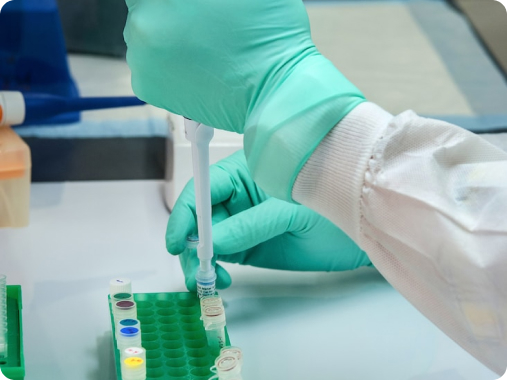World environmental concerns are growing, making it essential for every sector to play its part in mitigating climate change and reducing its ecological footprint. The field of scientific research is no exception. Sustainable research practices in the laboratory are not only ethical, but also cost-effective. By adopting environmentally friendly approaches to research, we can reduce our impact on the planet and enhance the efficiency and longevity of our research efforts.
Laboratory sustainability is no longer just a buzzword – it’s a necessity. Research labs, often hotbeds of innovation and scientific discovery, can play a pivotal role in promoting sustainability. By adopting eco-friendly practices, labs can minimize their environmental impact, reduce waste, and contribute to a more sustainable future.
Why Sustainable Research Practices Matter
Environmental Impact Reduction
Laboratories are known for their resource-intensive operations, from energy and water consumption to the disposal of hazardous waste. Sustainable practices help reduce these impacts, contributing to a cleaner environment.
Cost Savings
Sustainable laboratory research practices often lead to cost savings through reduced energy consumption and waste disposal fees, making research more efficient and cost-effective.
Ethical Responsibility
As members of the scientific community, we have a moral obligation to protect the environment for future generations. By adopting sustainable practices, we demonstrate our commitment to responsible research.
Long-Term Viability
Sustainable laboratories are more likely to thrive in the long term, as they reduce their reliance on finite resources and adapt to the changing landscape of environmental regulations.
Sustainable Research Practices in the Laboratory
Adopting sustainable research practices in the laboratory can reduce environmental impact, protect human health and save money. It requires a holistic approach that encompasses energy, water, waste, procurement, and education and training.
Small changes can make a big difference, and everyone in the laboratory should be encouraged to participate and contribute to sustainable practices. By working together, labs can become more efficient, safe, and sustainable, while still achieving their research goals.
Energy Efficiency
Implement energy-efficient lighting, heating, and cooling systems. Use natural light when possible, and ensure equipment is turned off when not in use. Invest in energy-efficient laboratory equipment.
Reduce, Reuse, Recycle
Minimize waste by reducing unnecessary consumption, reusing equipment and materials whenever possible, and implementing recycling programs for lab waste.
Green Chemicals
Use green and environmentally friendly chemicals. Minimize the use of hazardous substances and choose less toxic alternatives.
Water Conservation
Implement water-saving technologies, like flow restrictors and efficient water purification systems. Recycle water where feasible.
Sustainable Lab Design
When designing or renovating a laboratory, opt for sustainable materials and designs that maximize natural ventilation and reduce energy consumption.
Sustainable Procurement
Choose suppliers and products that align with sustainability principles. Consider the environmental impact of products before purchasing.
Lab Safety
Promote safety practices to minimize accidents and chemical spills that could harm the environment.
Eco-Friendly Disposal
Dispose of hazardous waste properly, following all relevant regulations and guidelines. Explore options for recycling or reusing waste products.
Promote Sustainable Laboratory Practices with Team
Ultimately, the sustainability of a research lab depends on the collective effort of its members. Create a culture of sustainable laboratory practices within your lab by promoting eco-conscious practices.
Education and Training
Regularly educate lab members about sustainable practices and their importance. Offer training on waste disposal, chemical safety, and energy-efficient lab techniques.
Green Lab Committees
Form a green lab committee that oversees and promotes sustainable practices within the lab. This committee can organize events, track progress, and implement new sustainability initiatives.
Setting Goals and Tracking Progress
Establish clear sustainability goals for the lab and regularly track progress. This can include reducing waste, lowering energy consumption, or minimizing water usage.
Incentives and Recognition
Recognize and reward lab members who actively contribute to sustainability efforts. This can be as simple as acknowledging their contributions or implementing a sustainability award.
Sustainable research practices in the laboratory are not just a trend – they are a necessity. By reducing your lab’s environmental footprint and implementing eco-friendly procedures, you can contribute to a more sustainable future – saving costs and ensuring the long-term viability of your research efforts.
Embracing sustainability in research is a win-win situation. It promotes ethical research while also benefiting your lab’s bottom line. So, let’s make a collective commitment to sustainable research practices, and together, we can contribute to a greener and more responsible scientific community.
Practices to Make Your Research Lab More Sustainable
One of the most effective ways to make your research lab more sustainable is by practicing mindful procurement and waste reduction. Labs often generate significant waste through disposable materials, chemicals, and equipment. By reevaluating your lab’s purchasing decisions, you can reduce waste and lower your lab’s environmental footprint.
Research labs have the potential to make a significant positive impact on the environment by adopting sustainable practices. By being mindful of procurement and waste reduction, optimizing energy use, managing chemicals responsibly, conserving water, and promoting sustainability within the lab community, you can contribute to a greener and more sustainable research environment.
These practices not only benefit the environment, but can also lead to cost savings and a more efficient and safer lab operation. It’s time for research labs to lead the way in creating a more sustainable future for all.
RENOVO Life Sciences: Your Sustainable Laboratory Research Practices Partner
A comprehensive lab asset management plan is the key to success in scientific research. Lab managers and scientists must work together to implement best practices, embrace technology trends, and ensure compliance with regulatory standards. By doing so, labs can optimize their operations, reduce costs, and produce more reliable research results, ultimately advancing scientific knowledge and innovation.
For further insights, case studies, and resources on lab asset management, contact Renovo to discuss your lab asset management needs. Together, we can revolutionize the way we manage assets in the world of scientific research.



